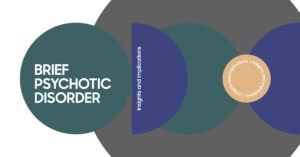The sigma male archetype has become a widely discussed concept in modern masculinity, captivating the imagination of individuals who resonate with the “lone wolf” mentality. As social dynamics evolve and the rigidity of traditional male roles is increasingly questioned, understanding the sigma male archetype offers valuable insights for anyone interested in personality psychology, self-development, and social behavior. In this comprehensive guide, we’ll explore what it truly means to be a sigma male, the key traits associated with this personality, how it compares to other male archetypes, and why this concept has gained such popularity in contemporary culture.
What Is a Sigma Male?
The term sigma male was popularized by Theodore Robert Beale (known as Vox Day) in 2010, initially as a way to expand upon existing models of male social hierarchy. Unlike the alpha male, who is often seen as a dominant leader, or the beta male, who tends to be more passive, the sigma male is characterized by his independence from traditional hierarchies. Sigma males can possess the confidence and skills of alphas, but they opt to operate outside the established social order, prioritizing autonomy, self-reliance, and introspection.
Essentially, a sigma male is a man who forgoes the need to dominate or submit within group settings. He is neither vying for leadership nor content with following; instead, he walks his own path, charting a course based on personal values and goals. This self-determined approach to life often places sigma males at the periphery of social structures, earning them the “lone wolf” moniker. While the concept began in niche internet circles, it has now permeated mainstream discussions on masculinity, relationships, and personal growth. For more on the origins and evolution of male archetypes, see this Psychology Today guide to personality.
Key Sigma Male Traits
Sigma males are defined by a unique constellation of personality traits that set them apart from both leaders and followers. Understanding these characteristics can help individuals identify whether they resonate with this archetype, and what implications it might have for their personal and professional lives.
| Trait | Description |
|---|---|
| Independence | Prefers autonomy, values freedom, and resists external control or expectations. |
| Love of Solitude | Finds comfort and fulfillment in spending time alone, often reflecting or pursuing solo interests. |
| Charisma | Possesses a subtle, often understated charm that can attract others when necessary, despite not seeking the spotlight. |
| Adaptability | Thrives in diverse environments, easily adjusting to new situations or challenges. |
| Nonconformity | Challenges societal norms and rules when they conflict with personal beliefs. |
| Low Profile | Prefers to remain unnoticed, focusing on personal goals rather than public recognition. |
| Lack of Assertiveness | Does not seek leadership roles or control over others; often avoids conflict and power struggles. |
These traits contribute to a personality that is both enigmatic and appealing. Sigma males are often mistaken for introverts or recluses, but their social withdrawal is a matter of preference, not inability. They can navigate social situations with ease when required, but they are not motivated by a need for validation or dominance. For more on personality typologies, visit the Verywell Mind personality types resource.
Sigma Male vs. Alpha Male: A Comparative Analysis
The classic dichotomy between alpha and beta males is deeply ingrained in popular culture, but the sigma male disrupts this binary by refusing to play by the rules of hierarchy. Here’s how sigma males and alpha males differ across key dimensions:
| Aspect | Alpha Male | Sigma Male |
|---|---|---|
| Social Position | Dominates the social hierarchy, often in leadership roles. | Operates outside the hierarchy, uninterested in dominance. |
| Leadership | Natural leader, thrives in group settings. | Rarely leads; prefers independence and self-direction. |
| Attitude Toward Rules | Upholds and often creates group norms and rules. | Questions or rejects rules that clash with personal values. |
| Communication Style | Extroverted, persuasive, and socially assertive. | Introverted or ambiverted, prefers meaningful over frequent interaction. |
| Motivation | Driven by status, recognition, and group approval. | Driven by personal fulfillment, autonomy, and self-mastery. |
These distinctions clarify why sigma males are often misunderstood or underestimated. Their refusal to compete for status, combined with a self-sufficient attitude, makes them both intriguing and, at times, intimidating to those invested in traditional hierarchies. If you’d like to learn more about the psychology of social dominance, check out this Scientific American article on social dominance.
How Sigma Males Fit Into the Male Social Hierarchy
The emergence of the sigma male archetype has broadened our understanding of male social roles. Traditional frameworks divided men into clear categories—alpha, beta, gamma, omega, delta, and so on—often emphasizing competition and rank. The sigma male, however, exists outside this pyramid, neither leading nor following. This model offers a liberating perspective for men who don’t resonate with dominance or submission and prefer a self-governed life.
In social settings, sigma males may appear detached or aloof, but their detachment is purposeful. They engage with others when it aligns with their interests or values but avoid being defined by group dynamics. This approach allows them to form meaningful, authentic connections without sacrificing their individuality. As society becomes more accepting of diverse identities, the sigma male archetype provides a valuable alternative for those seeking to define masculinity on their own terms.
The Appeal of the Sigma Male Archetype
The rise of the sigma male concept has coincided with broader cultural shifts toward individualism, authenticity, and mental health awareness. Many people find the sigma male attractive for several reasons:
Mysterious Personality
Sigma males are often perceived as mysterious or enigmatic, a quality that can be highly alluring. Their reserved nature invites curiosity, and people are naturally drawn to those who reveal themselves slowly and thoughtfully. The challenge of getting to know a sigma male, combined with their apparent self-sufficiency, can make them especially appealing in both personal and professional contexts.
Lack of Aggression
Unlike the alpha male, whose assertiveness can sometimes border on aggression, the sigma male is calm and composed. This emotional stability allows them to handle stress and conflict with poise, making them reliable and trustworthy companions. Their tendency to avoid unnecessary confrontation also means they are less likely to engage in toxic or destructive behaviors.
Few Social Expectations
One of the most liberating aspects of the sigma male archetype is the rejection of societal pressure to conform. Sigma males set their own standards and are not motivated by external validation. This self-assurance can inspire others to pursue authenticity and embrace their true selves, fostering healthier relationships and personal growth.
Versatility and Adaptability
Sigma males are often highly adaptable, able to thrive in a variety of environments. Whether working independently or as part of a team, their flexibility and problem-solving skills make them valuable assets in both personal and professional arenas. This adaptability also contributes to their success in navigating life’s challenges on their own terms.
Criticisms and Misconceptions About Sigma Males
Despite its growing popularity, the sigma male archetype is not without controversy. Several criticisms and misconceptions surround the concept, some of which stem from misunderstandings or the misuse of the term in online communities.
Poor Social Skills
One common misconception is that sigma males lack social skills or are incapable of forming meaningful relationships. In reality, many sigma males possess strong interpersonal abilities but choose to deploy them selectively. Their preference for solitude should not be mistaken for social incompetence; rather, it reflects a desire for quality over quantity in their interactions.
Harmful Stereotypes
Another criticism is that the sigma male concept reinforces harmful stereotypes about masculinity. Some argue that framing men as “lone wolves” can discourage emotional vulnerability and reinforce isolation. However, when understood as a celebration of individuality and self-reliance, the sigma male archetype can offer a positive alternative to rigid gender norms.
Association With Toxic Masculinity
Given its origins in certain online subcultures, the sigma male idea has sometimes been associated with toxic masculinity or extreme individualism. It’s important to recognize that healthy sigma males are not defined by hostility toward others or rejection of community, but by a balanced commitment to personal autonomy and respectful boundaries.
How to Determine If You Are a Sigma Male
If you’re curious about whether you fit the sigma male archetype, consider reflecting on your personality, behaviors, and core values. Here’s a step-by-step process to help you identify your alignment with this archetype:
| Step | Description |
|---|---|
| 1. Think About Your Personality | Are you energized by solitude or group activities? Sigma males tend to be introverted or ambiverted, valuing alone time. |
| 2. Analyze Your Behavior | Do you prefer working independently? Are you comfortable navigating life without constant validation from others? |
| 3. Consider Your Traits | Are you adaptable, empathetic, and able to challenge authority when necessary? Do you prioritize authenticity over conformity? |
| 4. Examine Your Social Interactions | Are your relationships meaningful but few? Do you avoid unnecessary drama and competition? |
| 5. Assess Your Motivation | Are your goals driven by internal values rather than societal expectations? |
Understanding your place within the male social hierarchy is not about ranking yourself above or below others. Instead, it’s about recognizing your unique strengths and embracing a lifestyle that aligns with your values and personality.
Embracing Sigma Male Traits in Your Life
Even if you don’t fully identify as a sigma male, adopting some of the archetype’s positive qualities can be highly beneficial for personal development and well-being. Here are a few practical ways to incorporate sigma male traits into your daily life:
Value Your Independence
Make decisions based on your own beliefs and priorities, rather than succumbing to external pressure. Cultivate self-sufficiency by setting personal goals and taking responsibility for your growth. This approach fosters resilience and confidence, allowing you to navigate challenges with clarity and purpose.
Enjoy Your Alone Time
Prioritize self-reflection and downtime. Spending time alone can boost creativity, reduce stress, and improve mental health. Whether it’s reading, hiking, or simply enjoying a quiet moment, solitude is an opportunity for growth and renewal.
Stand Up to Authority
While respecting legitimate rules and boundaries is important, don’t be afraid to question authority when you encounter unfairness or injustice. Developing a strong moral compass will help you make principled choices, even in the face of opposition.
Cultivate Adaptability
Embrace change and remain open to new experiences. Adaptability is a core strength of sigma males, enabling them to thrive in diverse environments. Challenge yourself to step outside your comfort zone, learn new skills, and grow from adversity.
Build Authentic Relationships
Focus on building genuine, meaningful connections rather than seeking popularity or validation. Surround yourself with people who respect your boundaries and share your values. Quality relationships are more fulfilling than a large social circle built on superficial interactions.
Prioritize Your Mental Health with Treat Mental Health
Understanding and embracing your unique personality traits is a crucial step in achieving emotional balance and personal fulfillment. Whether you identify as a sigma male or are simply exploring your place in the social hierarchy, taking care of your mental well-being should always be a priority. At Treat Mental Health, you can access resources, support, and guidance tailored to your individual needs. Prioritize self-care, seek professional help when necessary, and remember that your journey toward self-discovery and growth is entirely your own.
FAQs About Sigma Males
What is a sigma male?
A sigma male is a man who embraces independence, autonomy, and nonconformity. He is often called a “lone wolf” because he chooses to operate outside traditional social hierarchies, valuing self-reliance and authenticity above dominance or submission. Sigma males are comfortable in their own company and often pursue personal growth on their own terms.
What are the main traits of a sigma male?
Key traits of sigma males include independence, adaptability, emotional intelligence, and a preference for solitude. They are often charismatic yet reserved, able to navigate social situations without seeking attention or leadership. Sigma males challenge societal norms when necessary and prioritize meaningful relationships over popularity.
How is a sigma male different from an alpha male?
While alpha males seek dominance and leadership within groups, sigma males avoid the social hierarchy altogether. Alphas are typically extroverted and thrive on recognition, while sigmas are introverted or ambiverted, motivated by personal fulfillment rather than status. Sigma males do not compete for power, instead choosing to define success on their own terms.
What are the benefits of being a sigma male?
There are several advantages to embodying the sigma male archetype. These include resilience to peer pressure, comfort with solitude, strong problem-solving skills, and emotional stability. Sigma males often experience greater freedom to pursue their interests and maintain authentic relationships, as they are less influenced by external expectations.
Is it good to be a sigma male?
There is no universally “best” male archetype; each personality type offers unique strengths and challenges. Being a sigma male can be highly rewarding for those who value independence, authenticity, and personal growth. Ultimately, the key to happiness is embracing your true self and building a life that aligns with your values and aspirations.








